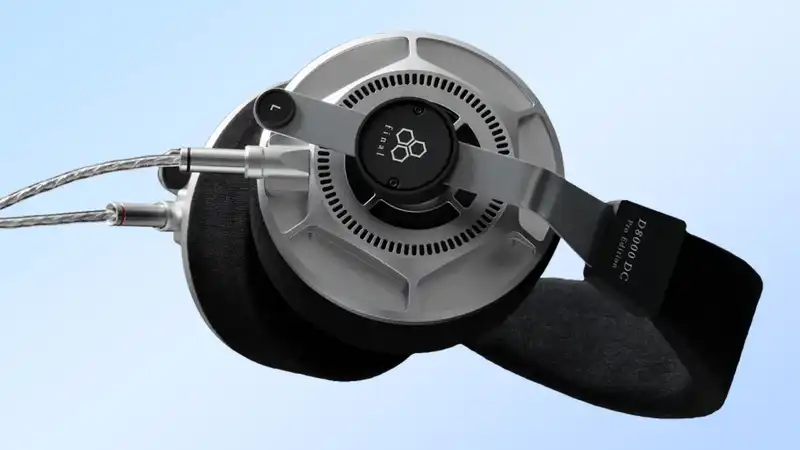The first of Intel's Arrow Lake desktop CPUs was announced in October and although it was highly praised for its power efficiency, some reviewers criticized it for its poor performance in gaming tests.
Intel has publicly apologized for this and stated that it has now completed an internal review and has derived multiple causes and solutions to the problem.
Intel has been something of a laggard over the past few years, with the last few rounds of consumer CPUs facing stiff competition from the likes of AMD, Apple, and Qualcomm. Intel is keen for customers to trust and buy its chips, so the wave of bad press for its latest lot is a major red flag prompting public action by the company.
After spending more than a month investigating the issue, Intel has compiled a list of five potential problems that may have affected the performance of these Intel Core Ultra 200S chips (specifically the Ultra 9 285K, Ultra 7 265K, and Ultra 5 245K) under review A list was developed. The company is currently rolling out solutions to four of the five issues in Windows 11 build 26100.2314, with a solution to the last outstanding issue scheduled for January 2025.
The bottom line is that if you are concerned that you might be affected by these issues, it is important to update your Windows 11 and motherboard BIOS to the latest version and keep them up to date.
The long version was provided by Intel in a post published today (12/18) on its blog. It is quite technical in nature, so I will summarize the main points below.
According to Intel, there are several reasons why the performance of the first desktop-grade Arrow Lake CPUs fell short in early reviews. Much of this was due to reviewers not having the optimal review environment for these chips, but Intel takes responsibility for not providing critical data.
You may be aware that in the “Power” section of the Windows 11 PC settings menu, you can set different power plans. They include “Balanced,” “High Performance,” etc.
Now, Intel claims that it has failed to provide reviewers with the optimal update that will optimize Windows to take advantage of these new chips. The company has an update available for Windows 11 build 26100.2161 (KB5044384), but according to Intel, the company “made this Windows Update package available to users/retailers rather than available to reviewers incorrectly scheduled” and that the impact of this was not seen in the review of the Arrow Lake chips.
Intel also provided an estimate of how much performance would be affected by each of the discovered issues, with the missing power plan issue being the biggest contributor to the 6-30% drop in performance.
Intel also has performance optimization software (branded Intel Application Performance Optimization) that runs in the background of the PC and dynamically adjusts core and thread scheduling to optimize the performance of the game. However, this optimization does not work well (or at all) if the PC does not have the correct information about the processor and the games running on it.
According to Intel, the reviewers' machines lacked the aforementioned Power Plan Management (PPM) package, so they could not take advantage of its APO technology. As a result, “the missing Intel PPM caused the processors to enter an abnormal state where APO did not work, resulting in a performance loss of approximately 2-14%.”
In fact, Intel APO is just one of a handful of firmware-level performance-enhancing features that Intel claims did not work as expected in at least some of these CPU reviews.
According to the company, these “VIP settings” were certainly not set to the highest possible performance in reviews of the latest Arrow Lake chips. According to Intel, this can occur when a reviewer reverts the test system to the default BIOS or updates the BIOS and the default settings are changed.
Intel took responsibility for these variations during testing, claiming that “the consistency of the VIP settings was not adequately re-verified or enforced (by Intel),” and added that it worked with Intel Z890-based motherboard manufacturers to ensure that this issue was resolved in the latest BIOS release He added that he had worked with Intel Z890-based motherboard manufacturers to ensure that the issue had been resolved in the latest BIOS release.
After updating to the latest 24H2 version, we have received complaints of a game over bug when playing titles such as “Assassin's Creed Valhalla” and “Star Wars Outlaws” on Windows 11, According to Intel, this is due to problems encountered within Windows by the Easy Anti-Cheat software in these games.
This means that, while clearly not Intel's fault, the Arrow Lake review process affected the functionality of a number of new games on Windows PCs. Intel claims that Epic Games is in the process of issuing an updated Easy Anti-Cheat driver that will fix this problem.
Intel concluded its report by noting that during its investigation it found a handful of performance improvements that were too new to be issued in a previous motherboard update.
However, the company claims that it is currently validating a new firmware image (Intel microcode version 0x114) that can deliver “single digit performance improvements” in dozens of games. These new firmware updates are expected to begin appearing in a BIOS update to be released in “early January 2025,” so those concerned about possible performance issues with the Intel Core Ultra 200S are advised to keep their motherboard's BIOS as up-to-date We recommend that those concerned about possible performance issues with the Intel Core Ultra 200S keep their motherboard BIOS as up-to-date as possible.
Intel concluded its apologetic post by promising to “provide the media with a comprehensive performance update that includes all of the above solutions” at CES 2025 in a few weeks. The company plans to give a full account of what happened, along with an analysis of why and how to fix it.
This is a huge apology from Intel, and with good reason. The company needs to build trust and goodwill with its customers, and it is unimpressive that the first batch of desktop-grade Arrow Lake CPUs performed so underwhelmingly in early gaming tests. [However, this explanation is also quite plausible given that Arrow Lake is the company's first desktop CPU to use the “chiplet” design already used by AMD, Apple, and Qualcomm. When it came to applying this new design to desktop PCs, which are far more unique and diverse than laptops, this was Intel's first at bat when it came to setting reviewers up with the software and firmware needed to get the most out of these chips. I fully believe that the company dropped the ball.
Of course, the question remains, where is the peak of Arrow Lake's potential? As it stands, we will have to wait until at least mid-January 2025. Because Intel claims that is when motherboard manufacturers will begin issuing BIOS updates that will provide the final round of performance optimization for these new CPUs.
.









Comments